0%
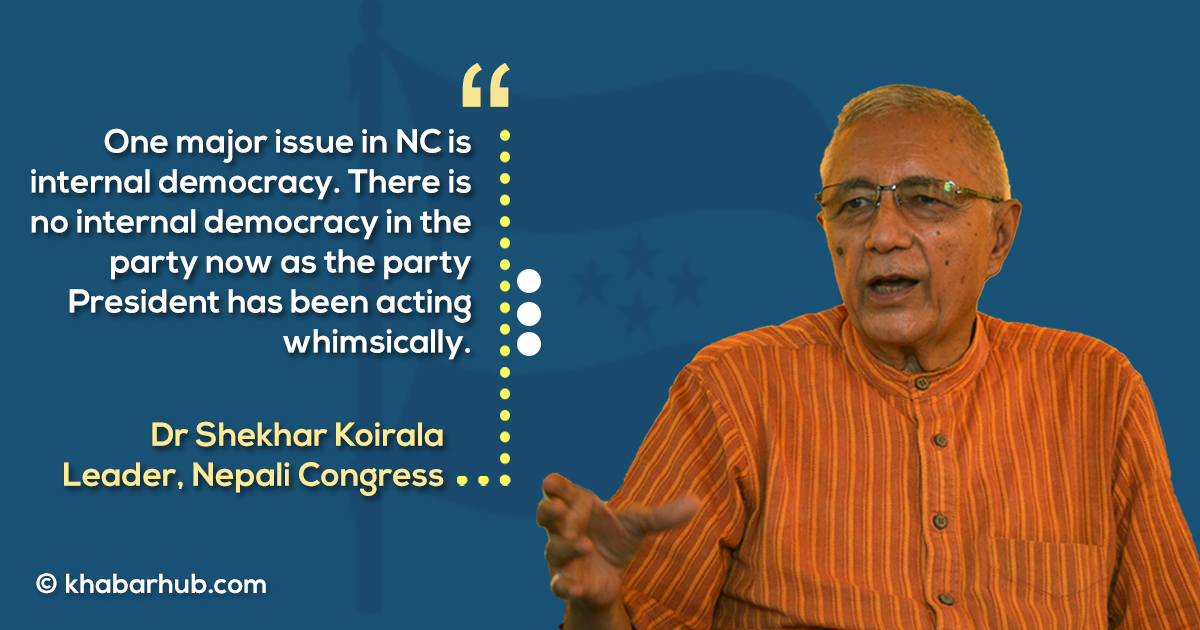
KATHMANDU: Nepali Congress (NC) leader Dr Shekhar Koirala, often considered audacious for his remarks, is never apprehensive as he unwaveringly believes in his thoughts.
He, in fact, has made up his mind to contest the election for the party president in the NC’s upcoming General Convention as he believes that it is high time that the historic party got a new leadership who can lead NC to a new height once again. Eak Raj Bastola and Govinda Luitel of Khabarhub caught up with Dr Koirala to hold a conversation on the current political issues, party’s General Convention, among others. Excerpts:
Nepali Congress is holding its 14th General Convention. With just six months left for the party’s gala event, how it the preparation going on?
The party’s Central Committee has made a schedule for the Convention from the ward unit to the central body. It has also worked on the procedure.
The question is about the issue of integration, which is not confined to a party as there are many sectors and issues. We have to integrate the party committees from former 240 constituencies to the 165 constituencies currently in practice.
The most challenging task of the Nepali Congress now underlies in the renewal and the distribution of active membership. This problem persists in several districts.
The procedure, however, has begun, yet there are the constraints from COVID-19 and other issues.
Do you see it feasible to organize the General Convention on February 19, 2021, after the successful completion of integration, renewal and distribution of active membership and then the conventions at all levels?
Integration is still incomplete in 11 districts. If we look at Province 2, integration is still to be done in nearly all districts in the province.
The convention is not possible unless the integration is accomplished. The party President has made a unilateral decision on the issues related to the renewal and distribution of active membership.
With such a decision, the newcomers or those who join NC from other parties get membership haphazardly which is likely to hurt the feelings of the party cadres and members who have spent years at the party. The President has not brought this issue to the Central Committee for discussion.
We had formed a committee for the integration of Bijaya Gachchhedar’s party. The committee formed under the coordination of Vice President Bimalendra Nidhi might still be working.
Besides Gachchhedar’s, many other parties have also wished to get mainstreamed in NC. The party President seems vying to provide active membership to all, yet the issue has not been brought to the Party’s Central Committee for discussion.
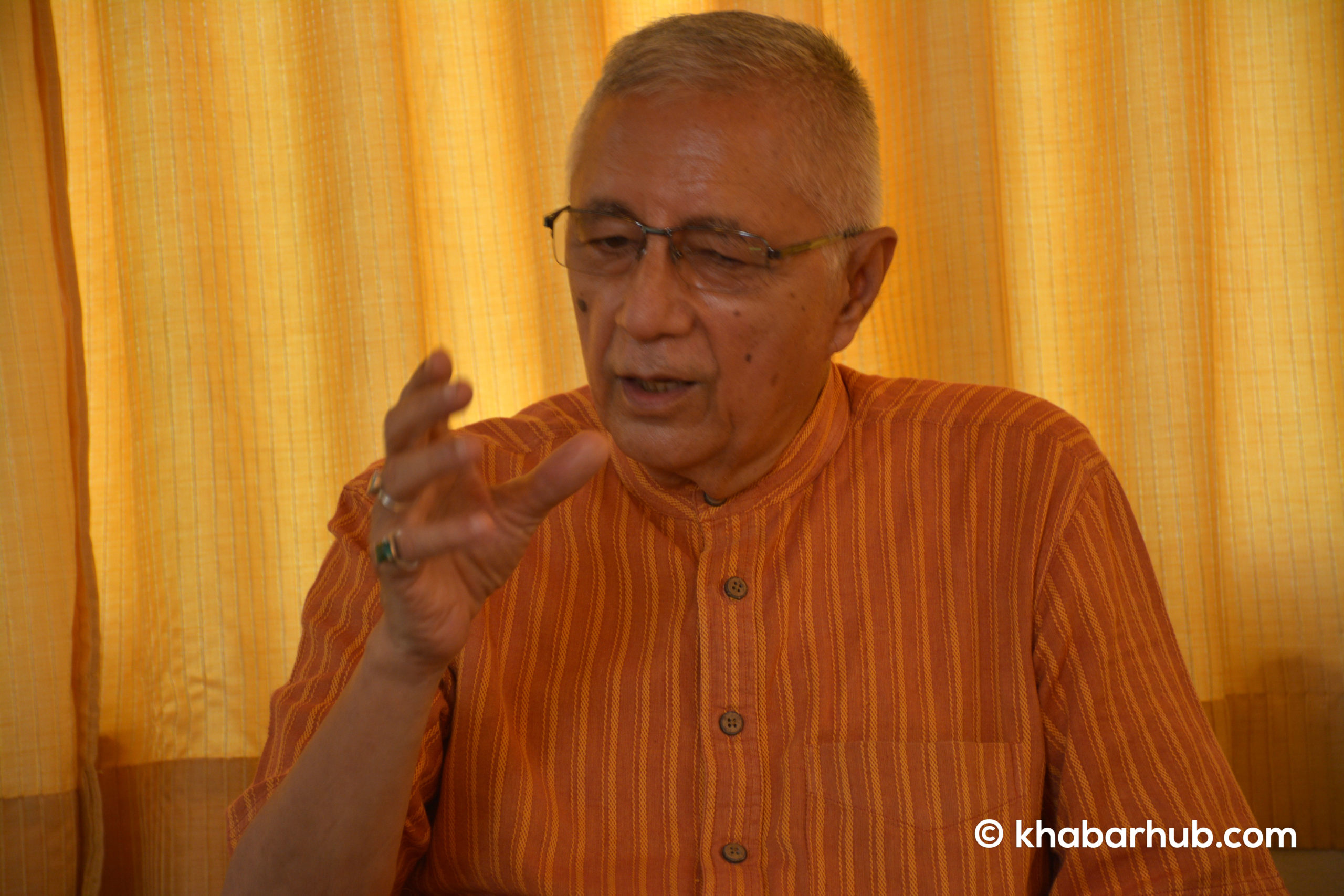
However, the party had decided on what post to assign Gachchhedar and how many people from his party can get the CC membership. Nothing else has been discussed in the party. The President seems to be making whimsical decisions. In fact, he has abused his power.
Provided the conventions, including the ward levels to others are not completed as assigned, the General Convention’s schedule may be affected. Yet, despite the irregularities on the party President’s side, I wish the GC schedule would not get affected.
Besides the internal factors of the party, do you see any external factors like COVID-19 which might influence the Convention set for February?
COVID-19 might pose some constraints. There are several other problems in the party. One of the major challenges is the one related to the renewal and distribution of active membership.
For example, the selection is controversial in the Rasuwa district. A section of a party has joined NC and the party President has assured them of incorporating them in the district committee.
This is unfortunate for the party as such activities put the genuine party members aside. How can NC retain its glory provided the newcomers push the genuine members aside?
COVID-19 can pose some threats, but there are some ways out for it as well. I don’t believe that NC’s General Convention should be in held Kathmandu alone.
History is the witness to the fact that till 1957, NC’s conventions used to be in the districts; the Center would declare the result after as it got from the districts. Technology has now made it further easier. There is also the facility of online voting.
There is no point in saying that everyone has to assemble in Kathmandu for the GC. There are many ways to ensure that despite the COVID-19 induced crisis, the Convention can still be held on time.
President Sher Bahadur Deuba has been activating and giving life to various departments at the party. Many including General Secretary Shashank Koirala and senior leader Ram Chandra Paudel have protested against it. Why should anyone dispute while activating or forming the party’s department?
Our party constitution then held that the departments had to be formed within 2 months after the General Convention, and the new amendment in the constitution also says that it should be done within 6 months.
The party President was in slumber for four and a half years and now, just 6 months before the new General Convention, he is forming and filling in the departments.
This is insolvency or let’s say failure on the part of the leadership. Why should they be formed for 6 months? We said, “Let it be if it’s not done for more than four and a half years, what is the relevance of forming the departments for just six months?”
We called a press meet and Ram Chandara Poudel, too, concurred with other party leaders. What needs to be taken into consideration is that the new appointees won’t get time to do anything new. Those friends also should use conscience. That’s my appeal.
There was a similar situation in the party during Sushil Koirala’s time.
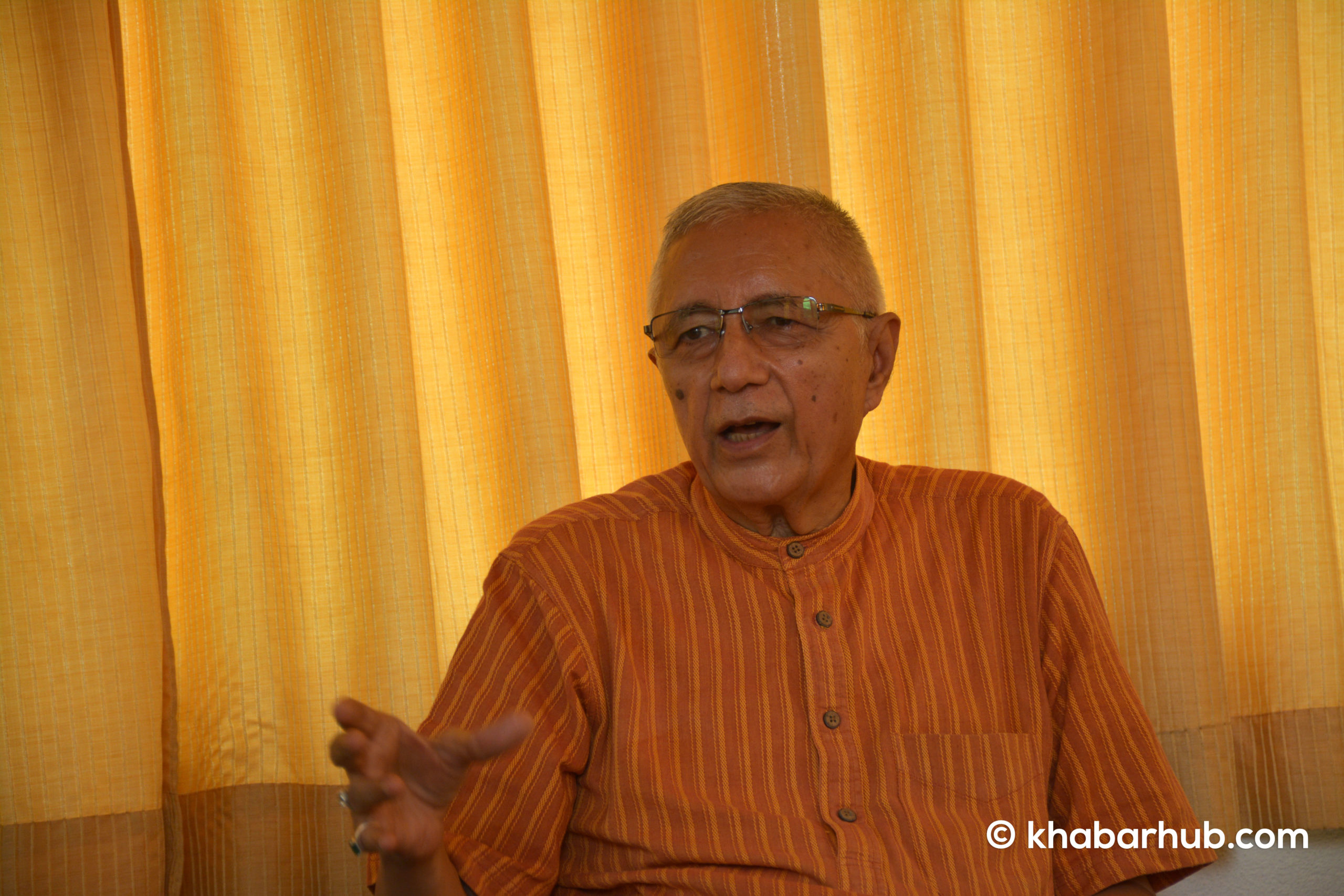
In his four year tenure, he started forming departments after 2 years of the General Convention. Sher Bahadur Deuba had then protested it, and he and his group even boycotted the central committee meeting.
Perhaps realizing that he was unable to form the departments on time, and not to put the party’s unity at stake, Sushil Koirala stalled the process. Today, Sher Bahadur Deuba is in the same position as Sushil Koirala.
Yet, he is adamant about his stance. How can Deuba continue the task he protested labeling it as ‘undemocratic’ before? Now, who can be more undemocratic than Deuba and his coterie?
How sensible can it be for a person acting in an autocratic manner to point out to others and label them as undemocratic? Can we have the moral ground to label the communists as undemocratic if we tread on the same path? It’s like being sans political culture. When the leadership turns undemocratic, how can NC demonstrate a democratic political culture?
There are many factions in the party now — one led by President Deuba, another led by Shekhar Koirala, and other groups led by senior leader Paudel, and a faction led by Krishna Prasad Sitaula, to mention a few. How many factions are likely to compete for leadership in the General Convention?
It is difficult to predict right now. You have already mentioned three. There can be many aspiring for leadership. This is something usual in a lively party. Our party statute has provisioned that a person should bag at least 51% votes to get elected as the party president.
Ram Chandra’s faction and we are in close contact and are together against the undemocratic activities of the incumbent President. We are in touch on a regular basis. We, perhaps, will move ahead together.
There is no certainty the same groups will persist. People may change the camps. However, one of the major issues in the party now will be internal democracy.
Discussions on the policy and program happen in a party, time will tell whether there will be internal democracy in the party or not.
In fact, there is no internal democracy in the party now as the President has been acting whimsically. Party is made up of individuals. Leaders should exercise democratic norms and values.
What’s cooking on for the post of party president amid the Koirala-Paudel faction? How do you plan to move ahead?
In fact, there are around 7-8 prospective candidates in the team. We are in close communication with each other. Things are going positive to date.
I have been talking with Ram Chandra Poudel in person and have also been talking with Prakash Man Singh and Shashank Koirala as well. Most probably, we will decide on a single candidate.
To be more specific on candidacy for the post of President, among Koiralas there are three, including you, Shashank, Sujata. Will it be that whoever among you three claims for the post, others also will support the candidate by heart?
We will have a candidate whoever it may be. We are in the preliminary stage now. We have to concentrate on the active membership.
It is natural to aspire for leadership after working for so long at the party. So, I do not take the aspiration as something unusual. What is more important is who do the party-workers and the GC representative go for or choose as leaders.
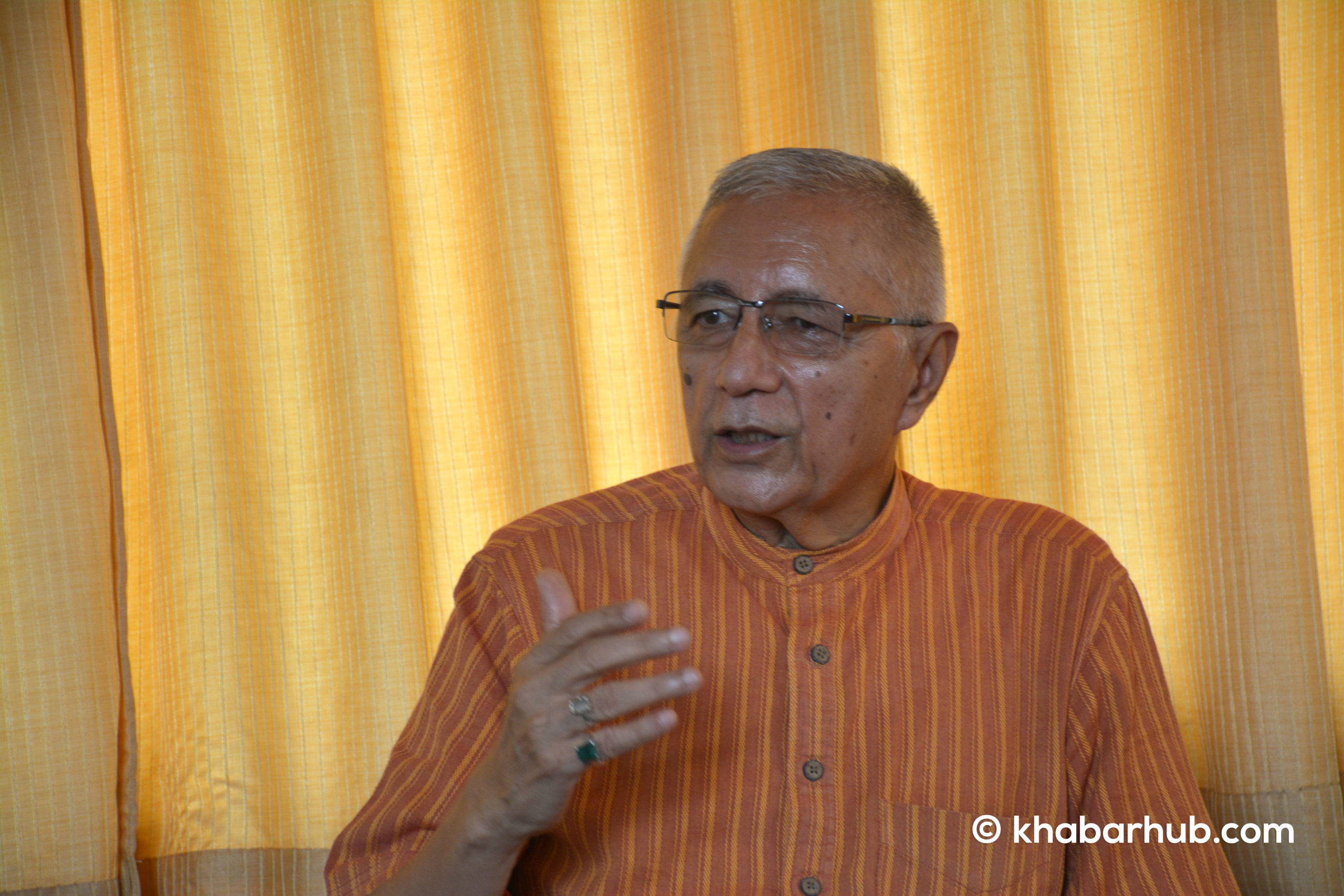
This time the ground is set for internal democracy. Incumbent President Deuba and his group seem inclined to end internal democracy. We will stand up against it unitedly.
Despite being the largest democratic party, the Nepali Congress seems to struggle for internal democracy be it during Girija Prasad Koirala, Sushil Koirala, or Sher Bahadur Deuba’s tenure. The ruling Nepal Communist Party (NCP), too, does not fare anything good in it. Why aren’t the political parties unable to overcome it?
Most of the politicians hold that I should be the leader. We often fail to realize whether the party power and state power are not the same.
We, in fact, are accustomed to portraying ourselves as experts in all sectors. If you ask me, I am interested to be the party, President.
Someone else may be interested in becoming the parliamentary leader and the Prime Minister. There lies the difference. When one person wants to hold all posts, it makes room for controversy.
The NCP is undergoing the same problem. We, too, have witnessed this since BP Koirala’s time. We should be clear on it. We have to make it clear to the party fold. The ongoing intraparty row is for the party power and state power.
NC is being alleged for failing to play the role of an effective opposition party in the parliament. The government has repeatedly turned deaf ears to NC’s its voices. How do you evaluate your party’s role in the parliament?
I need not tell on what issues our Parliamentary leader and party President managed to polarize in the parliamentary practice of the last two and a half years.
The main opposition party is supposed to support the government for the good deeds and oppose the policies, programs, and activities that are against democratic norms and principles.
What needs to be understood is that the opposition party’s role is not only for opposing the government but also for polarization. Unless the opposition party fails to polarize, it cannot be a genuine opposition party.
In these two and a half years in parliament, the main opposition has not been able to polarize on any issue. The foundation for the victory in the next election, polarization is a must for the opposition party.
The parliament after the COVID-19 pandemic has turned out to be the House of the ruling party. The main opposition party is the charm of multiparty democracy.
There should be vigil, conscious, conscientious and responsible opposition. In various issues related to the COVID-19 pandemic, the ruling NCP members acted as opposition; sometimes the civil society also protested though it seems in deep slumber now.
The opposition should always be there, but unfortunately, we failed to play the role of responsible opposition.
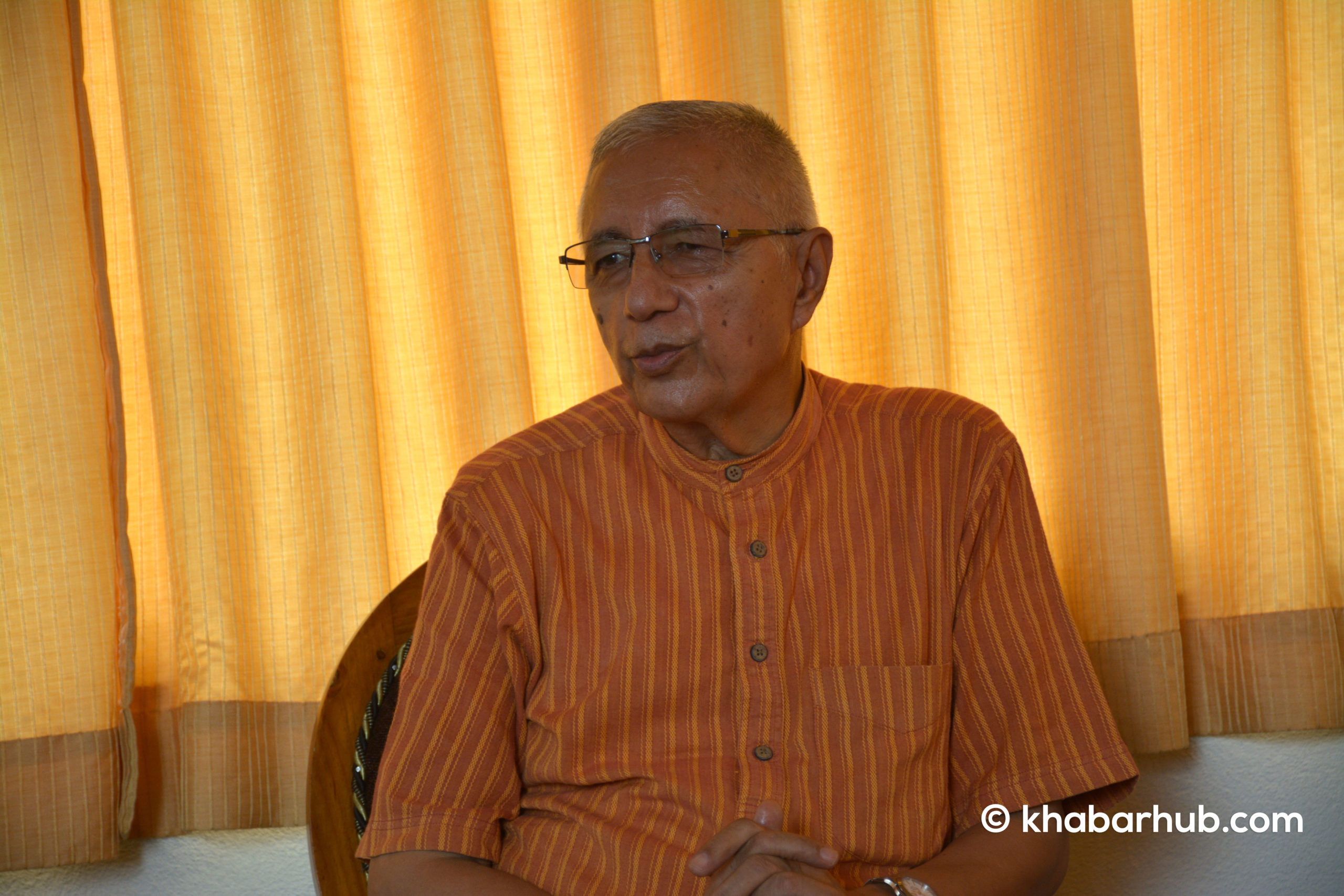
Lately, PM KP Oli’s remarks on various issues such as the ones related to India and coronavirus pandemic, his government, and the birthplace of Lord Ram are being criticized as not in the best interest of Nepal. What is your take on this?
Our relationship with India is multidimensional, it’s pre-historic and intimate. It cannot be described in words. None can break this relation as it covers a wide-ranging area of cooperation.
So far as the dispute about Kalapani, Lipu Lekh and Limpiyadhura is concerned, the territory belongs to Nepal. India has indeed been using it for quite long, but they genuinely belong to Nepal.
Lately, during Sushilda’s (Sushil Koirala) premiership, the issue was raised with India. Diplomatic dialogue, dialogue, and dialogue is the only solution to solve this problem.
I urge the government to resolve the issue through dialogue and get the territories back at the earliest.
I agree that PM Oli has not been very sensitive about the way of raising issues. There are many controversial comments made by PM Oli; as PM he has to act more tactfully and cordially rather than whimsically.
Nepal has already become part of the Belt and Road Initiative (BRI). The Millennium Challenge Corporation (MCC) is trapped in an intra-party conflict of the ruling Nepal Communist Party. Are these two competitive or complementary?
Actually, they should have been complimentary, however, the intra-party conflict of the ruling NCP exposed them as competitive to each other. BRI is a loan, MCC is a grant. The government should take the MCC to the parliament and endorse it. NC will readily support its ratification.
We should take both but should not be part of their strategies which are against our policy and national interests.
We cannot invest for the train, leave the loan aside, we cannot even pay the interest as well. I have told in China that the train project can have dire economic consequences.